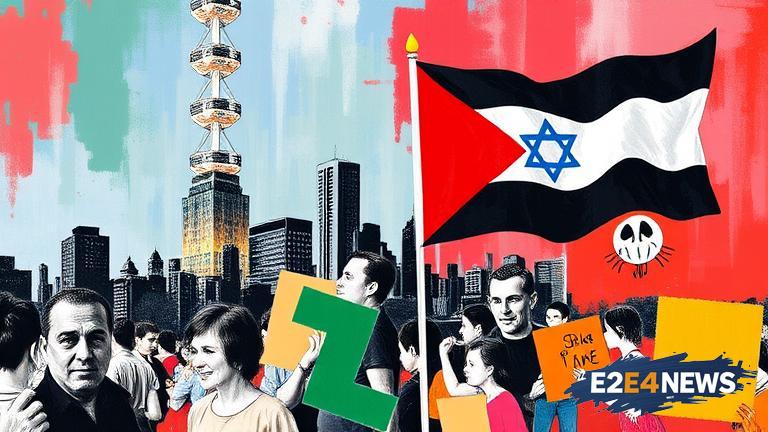Fierté Montréal, a prominent Canadian LGBTQ+ organization, has recently found itself at the center of controversy surrounding the Israeli-Palestinian conflict. In an effort to clarify its position, the organization released a statement addressing the issue. The statement aimed to provide context and explain Fierté Montréal’s stance on the matter. However, the move has sparked intense debate and discussion within the community. The Israeli-Palestinian conflict is a longstanding and complex issue, with deep-rooted historical, cultural, and political implications. Fierté Montréal’s decision to address the conflict has been met with both support and criticism. Some have praised the organization for taking a stand and promoting awareness about the issue, while others have expressed concern that the statement may be perceived as taking sides. The organization’s statement emphasized the importance of promoting inclusivity, diversity, and respect for all individuals, regardless of their background or identity. Fierté Montréal also highlighted its commitment to supporting marginalized communities and advocating for human rights. The statement acknowledged the complexity of the Israeli-Palestinian conflict and encouraged open and respectful dialogue. However, some critics have argued that the statement did not go far enough in addressing the issue, while others felt that it was too divisive. The controversy surrounding Fierté Montréal’s statement has sparked a wider discussion about the role of LGBTQ+ organizations in addressing international conflicts. Some argue that these organizations should focus solely on LGBTQ+ issues, while others believe that they have a responsibility to speak out on broader human rights issues. The debate has also highlighted the challenges of navigating complex and sensitive issues, particularly in a context where different communities may have competing interests and perspectives. Fierté Montréal’s statement has been seen as an attempt to balance these competing demands and promote a message of inclusivity and respect. Despite the controversy, the organization remains committed to its mission of promoting diversity and inclusivity. The incident has also sparked a wider conversation about the importance of education and awareness-raising on international conflicts. Many have called for greater efforts to promote understanding and empathy, particularly in the context of complex and sensitive issues like the Israeli-Palestinian conflict. As the debate continues, Fierté Montréal’s statement has served as a catalyst for discussion and reflection. The organization’s commitment to promoting inclusivity and respect has been reaffirmed, even as the controversy surrounding its statement continues to unfold. In the end, Fierté Montréal’s decision to address the Israeli-Palestinian conflict has highlighted the complexities and challenges of navigating sensitive issues, while also underscoring the importance of promoting awareness, education, and respect. The incident has sparked a wider conversation about the role of LGBTQ+ organizations in addressing international conflicts and the importance of promoting inclusivity and diversity. As the discussion continues, it is clear that Fierté Montréal’s statement has had a significant impact, sparking debate and reflection on the complex issues surrounding the Israeli-Palestinian conflict. The organization’s commitment to promoting respect, inclusivity, and diversity has been reaffirmed, even as the controversy surrounding its statement continues to unfold. The incident has also highlighted the importance of education and awareness-raising on international conflicts, particularly in the context of complex and sensitive issues like the Israeli-Palestinian conflict. Ultimately, Fierté Montréal’s statement has served as a catalyst for discussion and reflection, promoting a wider conversation about the importance of promoting awareness, education, and respect.
